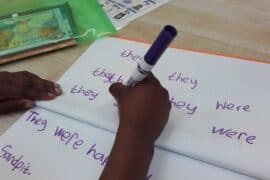Unwrapping the Mystery: Your Guide to Understanding New Baby Toddler Behavior
Hello beautiful parents out there! Get ready to embark on a joyful ride in the world of parenting. The babbles, wobbles, and gobbles that you are about to witness will surely bring a smile to your face. And all the guesswork behind your little one’s behaviors, we’ll help you decode that too! So fasten your seatbelts, because here starts your guide to understanding the new baby toddler behavior.
Why Understanding Toddler Behavior is Important?
Like little seeds growing into beautiful plants, your babies too are shaping into their unique selves each day. Every coo, every crawl, every topple counts in their growth and learning journey. Understanding their behavioral patterns helps identify their individuality, cater to their needs better, and forge a stronger parent-child bond.
Behavior Signals: What are they trying to say?
Just like the sounds and lights on your car dashboard alert you of what’s happening inside, your tots express their feelings and needs through their behaviors. Sometimes, it’s easy as pie – smile means they’re happy, and cry means they need attention. But what about those times when you’re left scratching your head, thinking, “What does this behavior mean?” Fear not, we’re right here to help you decode these signals.
Understanding Common New Baby Toddler Behaviors
Each toddler is unique, and so is their behavior. However, many behaviors are common to most toddlers as they explore their environments and learn about the world. Here’s a taster of what you’ll learn in this guide.
Toddler Tantrums
Ah, the dreaded tantrums! One moment everything’s all sunshine and rainbows, the next, your child is a little thunderstorm on two legs. No need for the raincoat! We’ll explore the reasons behind these sudden outbursts and, more importantly, share some handy tips to help you effectively manage them.
Intense Curiosity
Notice how your toddler turns explorer, analyzing every corner of the house with great zeal? This intense curiosity is a phase of their development. In this section, we’ll discuss ways to channelize their curiosity constructively and safely.
Separation Anxiety
Does your little one burst into tears every time you step out of sight, even if you’re just going to the next room? Meet separation anxiety, a common phase in toddlerhood. We’ll dig into ways to alleviate their anxiety, reassuring them that you’re always there.
And this is just the tip of the iceberg! Our comprehensive guide delves deeper into the magical journey of toddlerhood, helping you decode, embrace, and enjoy every single behaviour of your little one.
To more smiles, less weeping, and an abundance of joyful moments, happy parenting!

Credit: Pexels
Food Fussiness
Are meal times turning into a food fight with your toddler turning their nose up at all their previous favorite dishes? Welcome to the phase of food fussiness! We will shed light on why toddlers become fussy eaters and offer you strategies to handle it effectively and make mealtimes a pleasant experience again.
Throwing Things
Wonder why your sweet little bub suddenly starts throwing things — toys, food, anything they can get their hands on? It can be frustrating, messy, and sometimes dangerous. We’ll delve into what’s going on in your toddler’s mind when they do this and discuss the best ways for you to handle this behavior.
Toilet Training
One of the most significant milestones is when your toddler begins toilet training. It is a challenging period, filled with some trial, error, and lots of patience. We shall provide practical tips and tricks to ease the process and make it a positive experience for you and your child.
Conclusion
Parenting is joyous but can sometimes be a roller-coaster ride filled with happiness and challenges. This guide to toddler behavior is designed to support you on this exciting journey. While your path is unique, remember, all children go through similar phases as they develop. Every experience is a stepping stone towards becoming more attuned to your child’s unique needs and nature.
Here’s looking forward to your smiling faces, happier hearts, and a harmonious household as you navigate through the beautiful maze of parenthood. Here’s to happy parents raising happy children – cheers!
Preparing for New Baby Toddler Behavior: 5 Essential Things Parents Should Know
Preparing for a toddler is an exciting challenge. As parents, it’s crucial to understand the shifts in your baby’s behavior as they transform into toddlers.
Understanding Toddler Behavior
Toddler behavior includes a range of activities, from exploration, tantrums, to increased independence. As your baby starts to learn about their surroundings, their behavior can significantly change.
1. Increased Curiosity and Exploration
One of the first things parents will notice is the increased curiosity and exploration. Your baby will start to explore their surroundings with more enthusiasm, often leading to a series of mishaps. Child-proofing the house as per safety guidelines is an important step to ensure your inquisitive toddler is safe.
2. Emotional Ups and Downs
The rollercoaster of emotions is also a part and parcel of toddler’s behavior. Be it anger, happiness, or frustration, expect these emotions in full force. Being patient, understanding their feelings, and teaching them to express themselves appropriately can help guide their emotional development.
3. Independence is Key
As their physical abilities develop, toddlers strive for independence. They start insisting on doing things by themselves, which might test your patience but is a crucial step for their growth. Encourage this independence, but ensure safety at the same time.
4. Sleep Patterns Change
Parents should know that toddlers’ sleep patterns will evolve. They may resist bedtime, wake up multiple times, or start having nightmares. Establishing a consistent bedtime routine can help ensure they get the rest they need.
5. Testing Limits is Common
As toddlers grow, they start to test limits to understand the world around them. Often, this is misperceived as misbehavior. Rather than getting frustrated, guide them about the boundaries and consequences politely but firmly.
In a nutshell, understanding your new baby toddler behavior requires patience, love, and the ability to adapt to their changing needs. But remember, every child is unique, and these are only general guidelines. Keep observing your child to understand them better.
For more great articles please see here. For more information on raising children see here
Disclaimer
The articles available via our website provide general information only and we strongly urge readers to exercise caution and conduct their own thorough research and fact-checking. The information presented should not be taken as absolute truth, and, to the maximum extent permitted by law, we will not be held liable for any inaccuracies or errors in the content. It is essential for individuals to independently verify and validate the information before making any decisions or taking any actions based on the articles.




